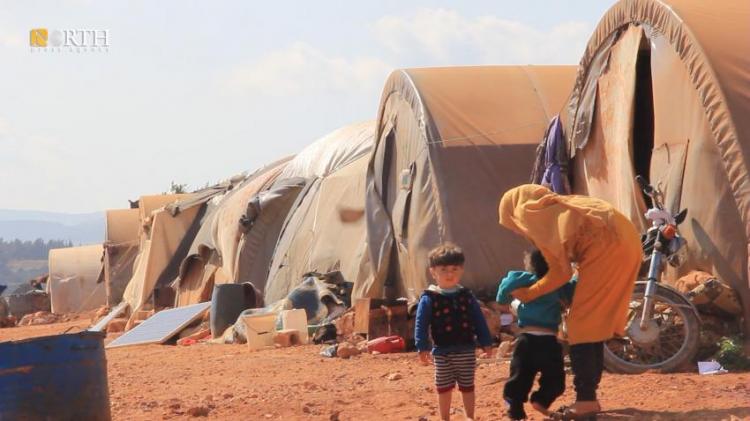Idlib – North-Press Agency
With the advent of summer season, cases of leishmaniasis, or what is locally known as "Habet al-Sana", increase in Idlib’s rural IDP camps, northwestern Syria, threatening the lives of thousands of children, amid the deterioration of some services and the absence of others such as sanitation and cleanliness measures.
Ibrahim al-Eid, one of those infected with leishmaniasis in al-Tah camp, west of Idlib, said that the environmental conditions in which the camp's residents lived are a factor that helps the spread of Habet al-Sana infections.
He added: "We are facing difficulty in receiving treatment, as we have to go to the Idlib, the town of Maarat Misirin, or centers where the treatment is available, and this needs a long travel distance."
He pointed out that the infected are often forced to buy ampoules for the treatment from leishmaniasis at their own expense, "although the price does not match the living conditions of the camp residents, amid many cases of infection among the children in the camp.”
Abdulsalam al-Youssef, director of the al-Tah camp, said that the number of leishmaniasis cases in the camp reached 25, and that they increase in summer time.
He explained to North-Press that the camp lacks sanitation, which caused the spread of the disease among its residents, adding: "We have secured some ampoules of treatment, but the number of infections are increasing, and we are no longer able to provide treatment for all cases."
Hundreds of families who were displaced to Idlib countryside to escape the military operations, were forced to build their tents in uninhabitable places and close to garbage dumps, because the high wages of private lands prevented them from renting suitable land for housing, according to a source familiar with the health situation in the Idlib governorate.
Hiba al-Muhammad, a pharmacist from the eastern countryside of Maarat al-Numan, who's working in the field of treating leishmaniasis in northern camps of Syria, said that they face a major problem in providing ampoules for treating leishmaniasis because they are not sufficiently available to cover the infected cases.
"Even if it is available in the market, the quantities are limited and at a price that is not commensurate with the ability of families to buy them, as they sometimes reach four thousand Syrian pounds," she added.
The years of war in Syria left a lot of damage to the infrastructure of cities and towns, which affected the level of services available to the population. The war also caused a large displacement movement of Syrian civilians in many Syrian regions, until the spread of the Habet al-Sana became common in many camps in the northwest of the country as well in the northern countryside of Aleppo, where thousands of Afrin’s displaced people live.
Previous reports by North-Press highlighted the suffering of the population in many areas in northeastern Syria, from the Euphrates region through the Hasakah countryside to the eastern countryside of Deir ez-Zor.

